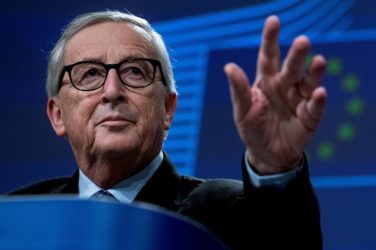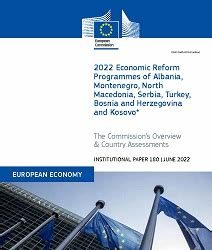AUTUMNAL ENTANGLEMENTS
Does the week of Monday September 9 signal the beginning of our “autumn of discontent”?
Rome Monday 9 September: The new (replacing himself) Italian Prime Minister elect, Giuseppe Conte, presents the proposed program of the new government (identified with the twin hues “giallorosso”) to the lower house of Parliament. The 29 point draft contains several themes which contradict the approach he had described in May 2018 when he was speaking in the name of a coalition of different colors. During his 90 minute speech, he is constantly interrupted by opposition groups denouncing him, and countless others, for “clinging on to their seats” rather than face an election. Outside the Parliament building, the leaders of the same opposition groups are haranguing a large crowd of protesters. These people frequently proffer Roman and Nazi salutes. On another continent, Facebook announces that it will no longer permit messages from CasaPound or Forza Nova, two notorious Italian groups with clear fascist connections. Yet these events barely mask one basic fact – that the “giallorossi” are desperately trying to demonstrate what they think will be perceived as “pro EU behavior”. Their open message to Brussels is that Italy is, alla fine della fiera, politically correct. Though their scarcely disguised additional message is “but it would help us one heck of a lot if you people loosened up”. Thus Conte’s visit to Brussels on Wednesday 11 saying that the Dublin Agreement has to be changed.
London Monday 9 September: Parliament is finally prorogued, amid raucous scenes in which, among other things, the now internationally known Speaker John Bercow announces his intention to retire, though not until 31 October, the day when the current extension to the Brexit arrangements officially ends. For some in the Parliament this is a “trick”, for others a “treat”, to use the language of the Guy Fawkes commemoration which will follow on 5 November. The incendiary figure of 1605 fame has today acquired an enhanced reputation. The massive disaffection for political figures in England has led to a popular witticism, namely that the said “terrorist” was the last person to enter Parliament with honest intentions. As in Rome, London is a place where there is an extreme inverse correlation between the political noise generated and the clarity of policy. The Yellowhammer documents (inevitably leaked – in today’s world, whether you are leaked or not has become a major indicator of your worth) purport to show that the infamous “No Deal” will not really do much harm. Their additional aim is to tell people that, even if you have to pay, you should and shut up – no price is too high for being English.
Brussels Monday 9 September: Ursula Von der Leyen introduces her proposed new cabinet of Commissioners which will subsequently have to be approved by the European Parliament. The list is far from anodyne. Paolo Gentiloni, the Prime Minister of Italy before the arrival of Conte, was nominated by the incoming Italian administration as its choice for Commissioner. Von der Leyen gave him the Finance and Economy portfolio, a designation met with great jubilation in Rome. But the joy is almost certainly misplaced. The Lithuanian, Dombrovskis, has been put in charge of “the Euro” and simultaneously made one of the 8 Vice Presidents, assuming command of the economy related areas. Gentiloni will therefore be subordinate to him, with restricted room for manoeuver. The very creation of a Directorate-General for the common currency makes it clear that there will be no change to Lutheran austerity, the monetary theology which has caused so much damage to the Zone throughout the present decade. If Italians think they are about to obtain special treatment, they will suffer a sharp reminder of reality. Meanwhile, London needs to note the appointment of Ireland’s Phil Hogan, the former Commissioner for Agriculture, as the person in charge of Trade. This puts him in the center of any future discussions on Brexit. “Big Phil” is renowned for knowing his briefs, hardly a description which could be applied to any of the Johnsonian crowd. They are liable to receive a dual humiliation. Ireland is today recognized as the EU’s shining star, the country which has, since the formation of the Union in 1992, carried out both an economic and, still more, a social revolution. It is arguably the only country which clearly continues to demonstrate, and not just preach, the political values on which the original idea of Europe was premised. So the English government, whatever it may be, will have to transact (if it still accepts that political transactions, and not bluster, are what yield results) with an Irish representative who calls the shots. Moreover, that representative will be speaking in the name of a far more powerful body. Bojo’s culinary problem will no longer be the hitherto invisible cake – he will instead have to swallow an all too real humble pie. Elsewhere in Von der Leyen’s list there are also some powerful indicators. The proposed Polish and Hungarian commissioners are certainly people who will not appeal to most of the European Parliament. Frau Von der Leyen is of course well aware of this. She has, however, taken care to give the portfolio (and Vice Presidential status) in the Law area to the former Belgian foreign minister, Didier Reynders. His position regarding the anti-democratic behavior of the Polish and Hungarian governments is well known. So there too the coming weeks promise some fun.
Vienna, throughout the week: the campaigns for the 28 September elections are in full swing. These elections are the consequence of the resignation of the coalition following the Ibizagate scandal. That scandal bears all the hallmarks of a carefully prefabricated operation. The material condemning Heinz-Christian Strache dates back to 2017 and had since then been in the possession of German journalists (and very likely of some Austrians). Its public release was almost certainly timed and not an accident. ExBundeskanzler Kurz may well have wanted to rid himself of a coalition partner that was becoming too much of an embarassment in the delicate line that he has been trying to trace. That line has its external and internal contours. These include: the geopolitics of Visegrad; the ever important relations with Russia; accommodation of the internal and deep seated prejudices of a large part of the Austrian electorate; and maintenance of the image of a country thoroughly committed to EU orthodoxy in financial and economic affairs. Austria is literally the geographic center of Europe. But in terms of its history, which is to a large extent also the history of several other EU member States, it is still more central. Shortly before his government’s resignation, Kurz had visited the Trentino and Alto Adige, autonomous regions of Italy which had previously been part of the Habsburg empire and where German remains the main language (even though everyone is bilingual with Italian). That visit provoked strong protests from the then Italian government, who considered it as “ingerence” in internal affairs. Kurz was reminding everyone that Austria, small though it may be, has a diplomatic radius of action which is by no means confined to Central and Eastern Europe – it is also a highly significant player to the south. Let us not forget that, in addition to Italy, its profound involvement in the Balkan States is not the only meridional dimension. Historically, Austria and Spain have always enjoyed very close relations. The Vice President of the new Commission handling Foreign Affairs is the Spaniard (Catalan) Josep Borrell, till now the Foreign Minister of the Sanchez government and also very active on the diplomatic side of Brexit (Gibraltar). Sebastian Kurz, who will most likely return as Bundeskanzler in a new coalition, is not only the youngest EU leader but also in many ways the most experienced. He was previously himself Foreign Minister and Interior Minister. As Bundeskanzler, he masterminded the Austrian Presidency in a period fraught with difficulties. There can be few in the EU who rival his knowledge. Moreover, it should not be forgotten that the previous head of the EU Commission staff, and Head of Juncker’s office, the German lawyer Martin Selmayr, has chosen to be the Head of the EU Delegation in Austria. As the phrase goes, “Wien bleibt Wien”.
Barcelona, Wednesday 11 September was “Diada Day”, the date when Catalans celebrate Cataluna. In 2012 the crowds attending reached an estimated 1,5 million. This time the figure is put at around 600,000. Momentum is never easy to sustain, and it’s true that there are divergences among independentist leaders about how to proceed. These divergences have been accentuated after the April Spanish elections and the subsequent softer line adopted by Prime Minister Sanchez (though it must be recognized that almost any line was bound to be softer than that of Spain’s icon of immobility, ex- Premier Mariano Rajoy). Yet everyone is waiting for the verdict, scheduled for October, of the Spanish Supreme Court in the trial of the 12 Catalans accused of treasonous actions in the referendum of 2 years ago. The one certainty is that, whatever the verdict may be, and however nuanced may be the findings on which it is based, substantial numbers of people in Cataluna and the rest of Spain will be deeply unhappy. From which it follows that there are bound to be demonstrations and very public conflicts. Already some are proposing a Catalan version of the “gilets jaunes” (yellow is absolutely the in color for this political autumn – and don’t forget it shows on both the Spanish and the Catalan flags) – and that might only be the beginning. The Madrid government appears to be facing a “loser to nothing” moment. Theoretically, it would like to separate the trial verdict (s) from discussions about longer term arrangements between Cataluna and Spain. But in practice that is impossible to do. Everyone will use the legal findings as the litmus test for the nature of the political processes to come. Symbolically, it would be striking if Sanchez and others could join hands in the customary circle to dance a Sardana outside the cathedral of Barcelona one Sunday morning soon. Yet the ominous political fact is that the circle will need to be squared. Maybe clever choreography and gifted geometry are both required.
Brussels Again, Any and every day of the week: It is way beyond 100 days since Belgium has had a government. The elections of 26 May produced a result where the Flemish nationalist groups N-VA and Vlaamse Beweging were the largest single parties (collecting 41 of the seats in a parliament where 76 are needed for a majority). They have made it abundantly clear that they want separation, the creation of an independent country. It is easy to say – so what? The record period for which Belgium has gone without a government approaches 400 days, while the position of the N-VA and Vlaamse Beweging has long been well known. Are there any reasons to think that the present hiatus is any different from the past? The answer is “yes”. This time the balance of power in the internal negotiations has tilted. The Flemish bloc is more strongly placed than before. The overall European setting has moved in favor of the kinds of views which the N-VA and VB propound. At least two important Belgian figures have moved into the European sphere (Didier Reynders as mentioned above, with ex- Prime Minister Charles Michel replacing Tusk as President of the European Council), and thus their voices of compromise are dulled, if not entirely absent. A mood of pessimism is in the air, which does not augur well as regards the content of any future agreement. It remains more than likely that some accommodation will eventually be reached among the myriad parties involved (12 groups obtained seats). Yet the structure is ever more fragile. It is remarkable that, in all the sound and fury which has accompanied recent political developments in EU countries, the chronic erosion in the place which is at the very heart of discussions has somehow seemed to pass under the radar. More remarkable still is the fact that Belgium is the country whose 1831 constitution, drafted as the country obtained independence, is frequently regarded as one of the finest produced in the European sphere. That constitution is now under a genuine threat.
This week is thus considerably more than an annual “rentree scolaire” across the continent, more than an ordinary “rentree politique”. It offers a tantalizing panorama where the problems appear to outweigh the opportunities by a considerable margin; where the uncertainties abound (and where in several places, notably in the UK and Italy, the generation of uncertainty seems to have become a national pastime); where the temptations to focus on local/national problems are great, yet the turbulences beyond the continent (and which affect it profoundly) can only be ignored at considerable peril; and where the probabilities for a deepening of the global economic recession are indeed high. Most of all, the continent is at a crossroads in terms of its self- perception, and its perception of its place in the world. At the end of the Spanish civil war, the great poet Antonio Machado spoke of “las dos Espanas”. The one, which was not yet dead; and the other, which was yet to be born. We now know how long it took before the dilemma was resolved (and some may argue that it remains unsettled). Europe will not be permitted several decades to sort out its difficulties, nor will individual States be given that luxury. While not everything is yet locked into the nanosecond, the clock is nonetheless ticking.
Peter O’Brien, Brussels, September 2019





